“Convoy” by C.W. McCall is one of the most interesting songs in all of country music because of its defiant, unique story. It is about a fictional group of truckers that organize a protest over Citizen’s Band (CB) radio using their own made up code words. Although the story in the song is fictional, it is inspired by real protests and the CB radio fad.
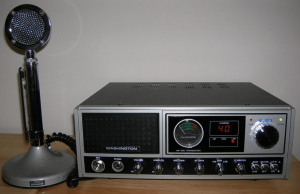 CB radio was a relatively cheap radio that, unlike amateur radio, could be used by anyone without a license. For these reasons CB radio become incredibly popular in the 1970’s. CB radio caught on the same way social media and online communication does today. People were excited to have a platform that would connect them to strangers all over the nation for practical and personal uses. CB radio was used for everything from small businesses communicating with employees to hobbyists just looking for entertainment.
CB radio was a relatively cheap radio that, unlike amateur radio, could be used by anyone without a license. For these reasons CB radio become incredibly popular in the 1970’s. CB radio caught on the same way social media and online communication does today. People were excited to have a platform that would connect them to strangers all over the nation for practical and personal uses. CB radio was used for everything from small businesses communicating with employees to hobbyists just looking for entertainment.
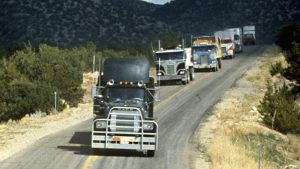 Trucker drivers also began to using CB radio to communicate, especially after the United States enforced a nationwide 55 mph speed limit during the oil crisis of 1973. This, among other regulations, angered truckers who then used their CB radios to form convoys. Convoys were groups of truckers that drove together down highways faster than the speed limit because the police couldn’t catch all of them. Convoys would also tell each other where police officers set up speed traps, if there was a roadside emergency, or even block off roads with their trucks in protest. Because police would also listen to the CB radio channels, the trucker drivers developed an elaborate slang including code names called handles to protect their identities. After hearing about this unique dialogue, McCall and songwriter Chip Davis bought a CB radio which inspired them to write “Convoy”. The song is filled with this trucker slang including lyrics like “Ah, breaker one-nine, this here’s the Rubber Duck. You gotta copy on me, Pig Pen, c’mon?”. If you are curious, you can find a list of the slang online to figure out what the lyrics mean.
Trucker drivers also began to using CB radio to communicate, especially after the United States enforced a nationwide 55 mph speed limit during the oil crisis of 1973. This, among other regulations, angered truckers who then used their CB radios to form convoys. Convoys were groups of truckers that drove together down highways faster than the speed limit because the police couldn’t catch all of them. Convoys would also tell each other where police officers set up speed traps, if there was a roadside emergency, or even block off roads with their trucks in protest. Because police would also listen to the CB radio channels, the trucker drivers developed an elaborate slang including code names called handles to protect their identities. After hearing about this unique dialogue, McCall and songwriter Chip Davis bought a CB radio which inspired them to write “Convoy”. The song is filled with this trucker slang including lyrics like “Ah, breaker one-nine, this here’s the Rubber Duck. You gotta copy on me, Pig Pen, c’mon?”. If you are curious, you can find a list of the slang online to figure out what the lyrics mean.
“Convoy” topped the country and pop charts and was included in Rolling Stone’s 100 Greatest Country Songs 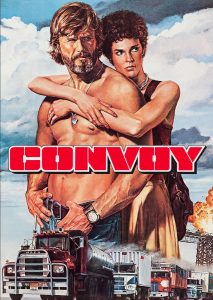 of All Time in 2014. After “Convoy” was released, people became obsessed with CB radio and trucker culture. Millions of people in the United States began buying CB radios to join in on the fun and even created their own handles and slang words. Many other songs and movies about truckers were made including an action-packed, fairly successful movie that was also called “Convoy” and was based off of the song. The movie featured none other than Kris Kristofferson as the lead trucker, Rubber Duck.
of All Time in 2014. After “Convoy” was released, people became obsessed with CB radio and trucker culture. Millions of people in the United States began buying CB radios to join in on the fun and even created their own handles and slang words. Many other songs and movies about truckers were made including an action-packed, fairly successful movie that was also called “Convoy” and was based off of the song. The movie featured none other than Kris Kristofferson as the lead trucker, Rubber Duck.
In 1979 another oil crisis emerged causing another wave of protests, but this time it became violent. Many truckers went on strike and would use CB radio to threaten those who didn’t. Some of the more extreme truckers would even throw rocks or shoot at the trucks of drivers who were not participating in the strike. This violence lead to the decline in popularity of trucker culture, culminating in the murder of a truck driver in 1983.
Despite its unfortunate ending, the rise of trucker culture was a fascinating trend. “Convoy” was instrumental in creating and recording the history of this fad. Although seemingly light and fun, the song has a captivating story about serious political issues and how technology can unite people all over the country.

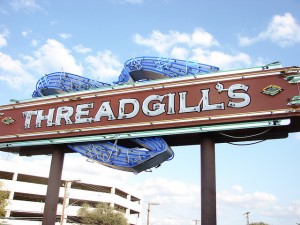
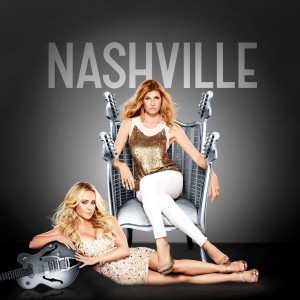
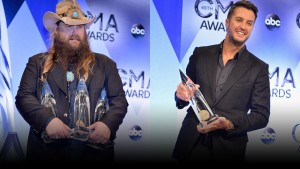
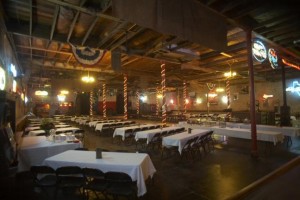 my fair share of Billy Bob’s concerts. After coming to Austin I was wondering if I
my fair share of Billy Bob’s concerts. After coming to Austin I was wondering if I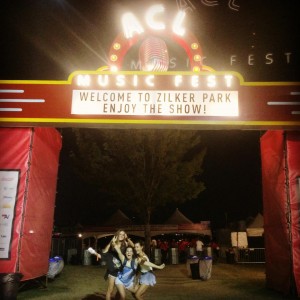
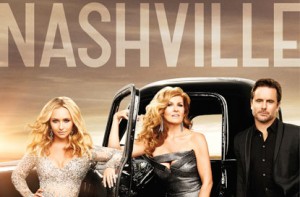
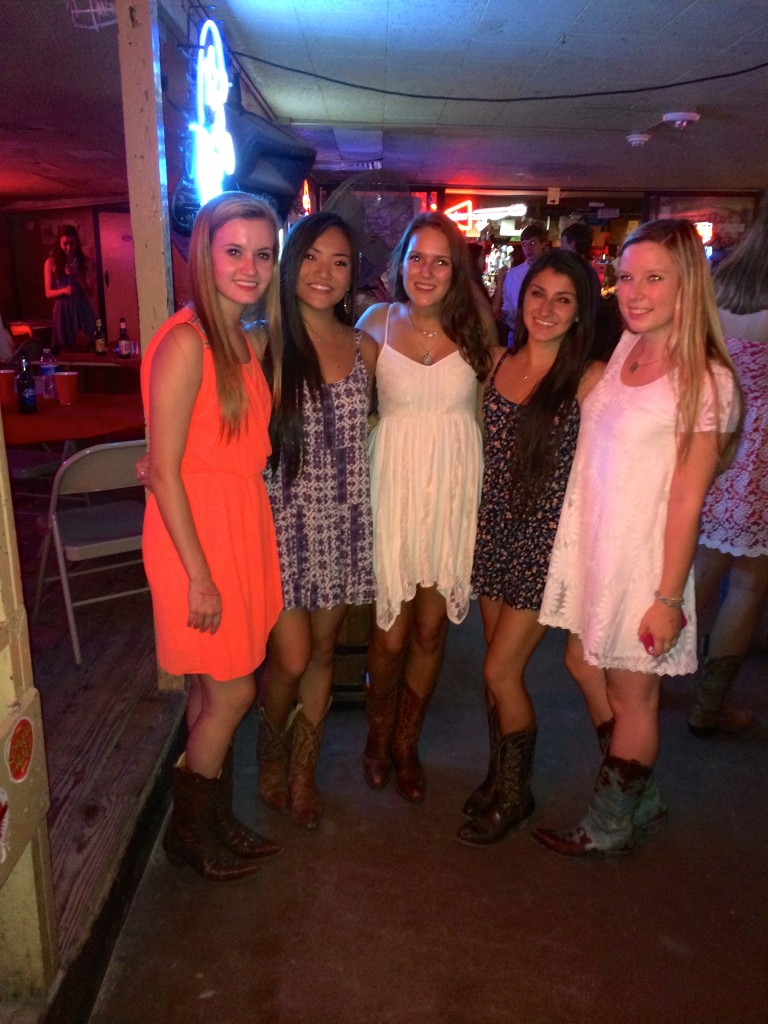 First off, I have been a dancer my entire life, but two-stepping was something I never knew how to do. When I went to Broken Spoke here in Austin for a chapter wide mixer, it was my first time really learning this style of dance. I remember not knowing any of the songs that I was dancing to that night, unlike everyone else. But since dancing and listening to the variety of country songs that played that night, it really increased my interest, and intrigued me to learn more about this genre. With that said, this night definitely marks the foundation of where my appreciation for country music all began.
First off, I have been a dancer my entire life, but two-stepping was something I never knew how to do. When I went to Broken Spoke here in Austin for a chapter wide mixer, it was my first time really learning this style of dance. I remember not knowing any of the songs that I was dancing to that night, unlike everyone else. But since dancing and listening to the variety of country songs that played that night, it really increased my interest, and intrigued me to learn more about this genre. With that said, this night definitely marks the foundation of where my appreciation for country music all began.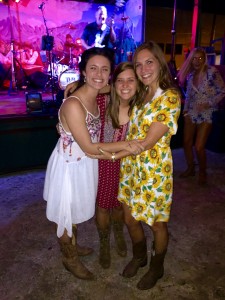 Dance Across Texas (formerly Midnight Rodeo): There aren’t many true dance halls around anymore, but luckily Austin has a few that are easy to take advantage of (though I highly doubt anyone in college refers to them as “dance halls”). One night a group of friends and I all decided to divert from the regular go-to weekend spots and try something different. I broke out my one pair of cowboy boots that my mom bought from a sketchy dude-ranch in San Antonio that I solely wear for football games, and we headed to
Dance Across Texas (formerly Midnight Rodeo): There aren’t many true dance halls around anymore, but luckily Austin has a few that are easy to take advantage of (though I highly doubt anyone in college refers to them as “dance halls”). One night a group of friends and I all decided to divert from the regular go-to weekend spots and try something different. I broke out my one pair of cowboy boots that my mom bought from a sketchy dude-ranch in San Antonio that I solely wear for football games, and we headed to 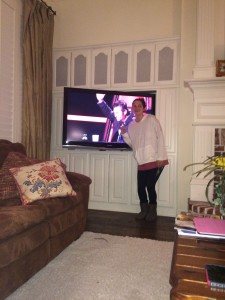 The Voice: As a The Voice
The Voice: As a The Voice